BMW i5 Flow NOSTOKANA brings Esther Mahlangu’s art to life at Frieze LA
BMW’s Art Car Project has rarely impacted on the company’s everyday business of building cars. With the BMW i5 Flow NOSTOKANA, could all that be about to change?
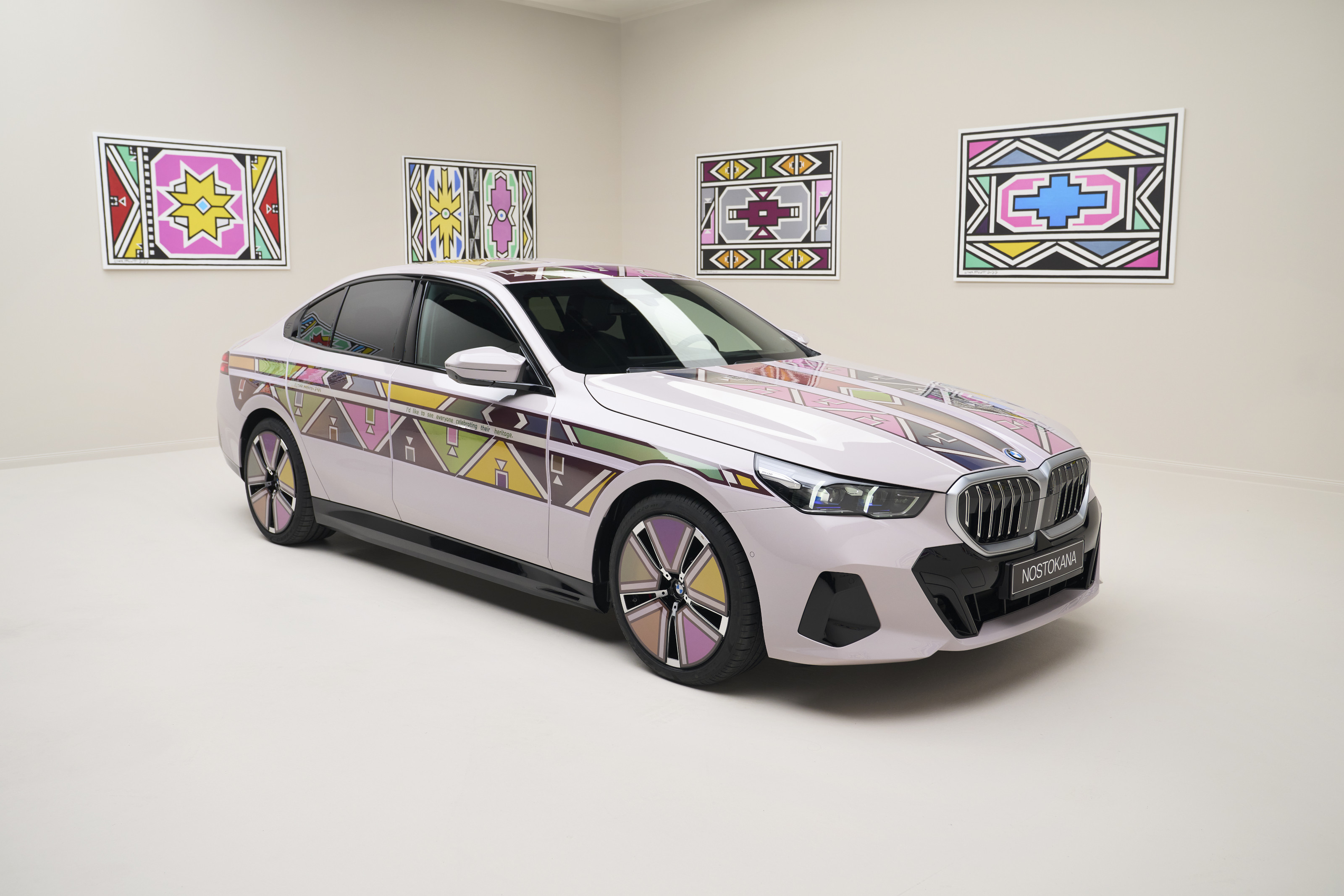
Overseen by BMW’s head of cultural engagement, Thomas Girst, since 2003, the BMW Art Car series has evolved from cars as canvases to installations and technological experiments. Over half a century, the programme has offered a wildly diverse insight into the relationship between art and industry.
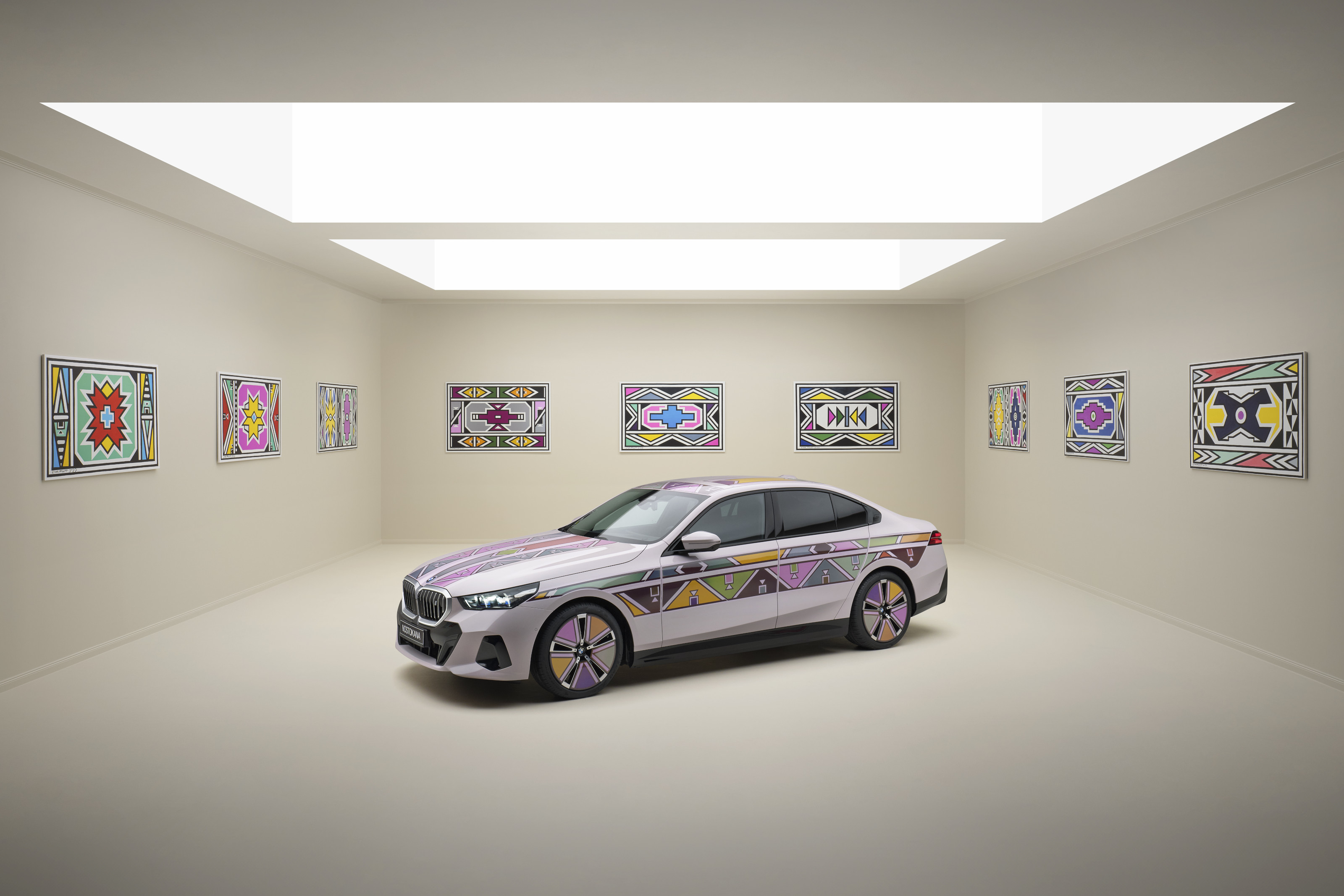
BMW i5 Flow NOSTOKANA
Against the backdrop of Frieze LA 2024, BMW revealed its latest art-inspired creation, a fusion of ‘art and innovation’ that takes the traditional and graphic art of Esther Mahlangu and injects it into the new BMW i5. Mahlangu, currently the subject of a major retrospective at the Iziko South African Museum, ‘Then I knew I was good at painting: Esther Mahlangu’, was one of the first generation of artists to work on the BMW Art Car Series.
BMW i5 Flow NOSTOKANA at Frieze LA 2024
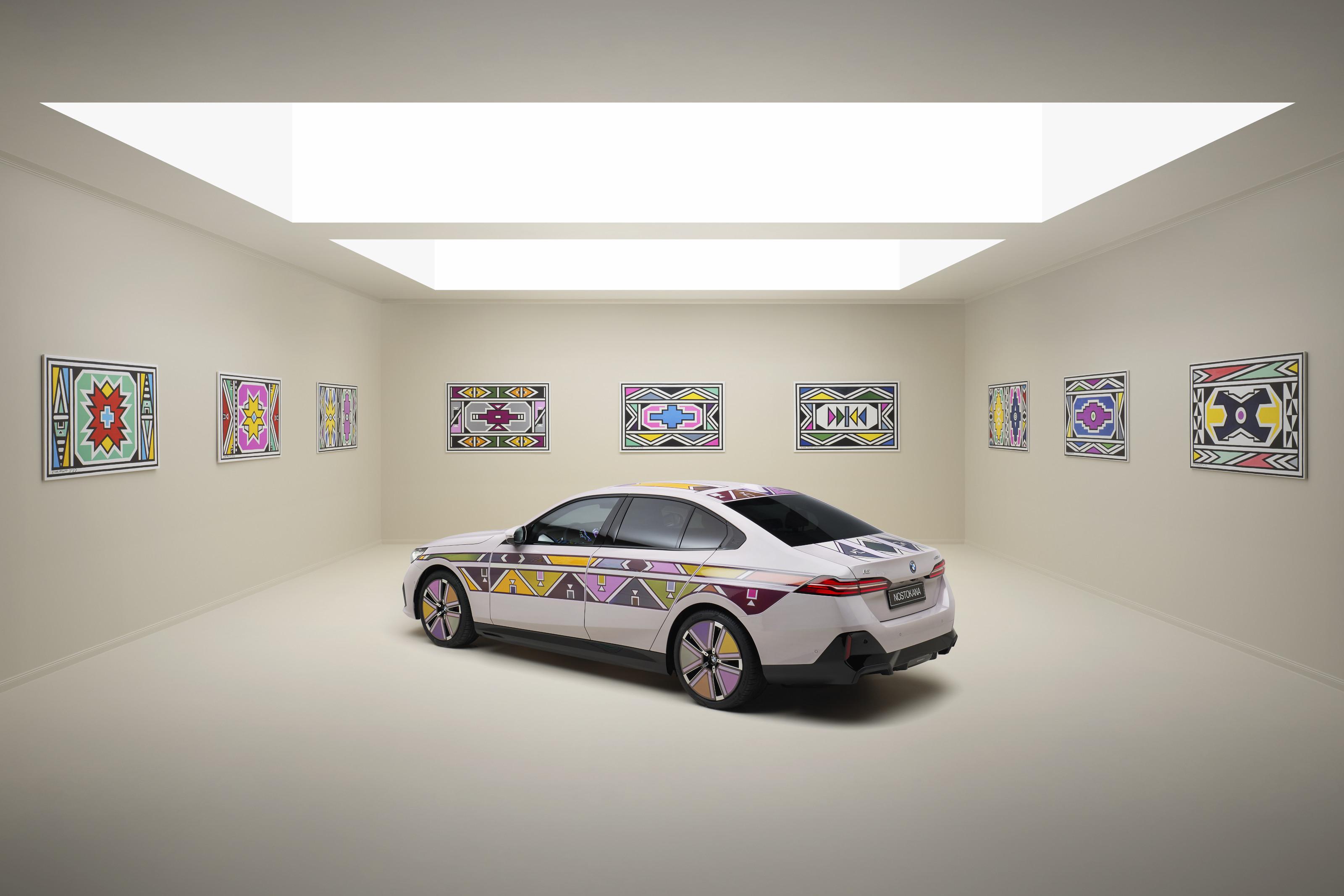
BMW i5 Flow NOSTOKANA
In 1991, the South African artist was invited to transform a BMW 525i, the 12th car in the series. The resulting Art Car – which takes centre stage at the Iziko show – was the inspiration for the unique BMW i5 Flow NOSTOKANA revealed at Frieze Los Angeles. How this project came about is a fine illustration of the company’s cultural reach, as well as an example of how design, engineering and fine art can sometimes be threaded together in unexpected ways.
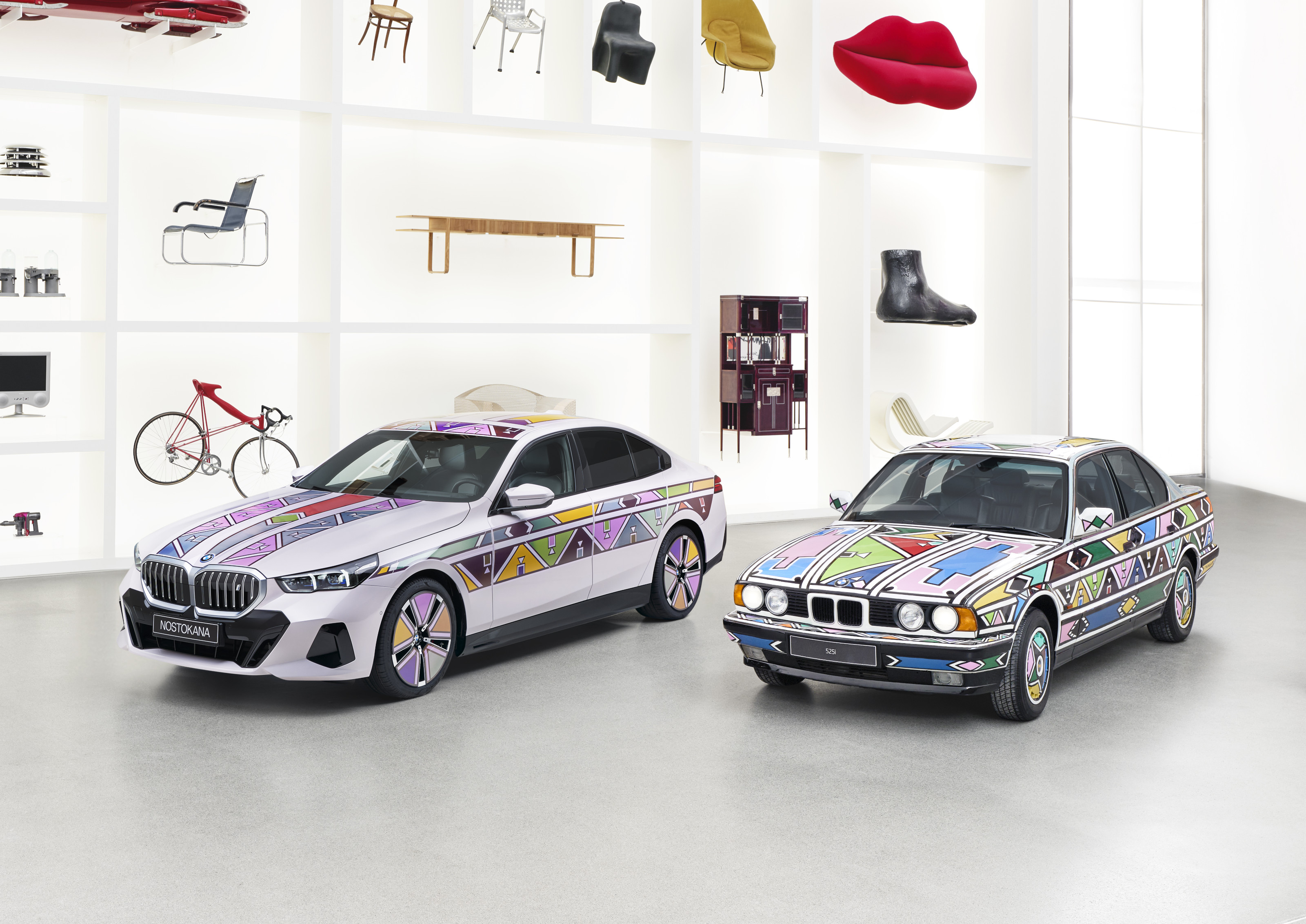
BMW i5 Flow NOSTOKANA alongside Esther Mahlangu's original 1991 BMW 525i
This is the third concept to feature BMW’s colour-changing technology, a process of incorporating e-ink panels into the bodywork of the car as a way of dynamically adjusting the surfaces. 2023’s BMW i Vision Dee concept not only introduced the form language of the next generation 5-Series, but evolved an idea first seen on the 2022 BMW iX Flow concept, a monochrome re-interpretation of the then-new BMW iX electric SUV.
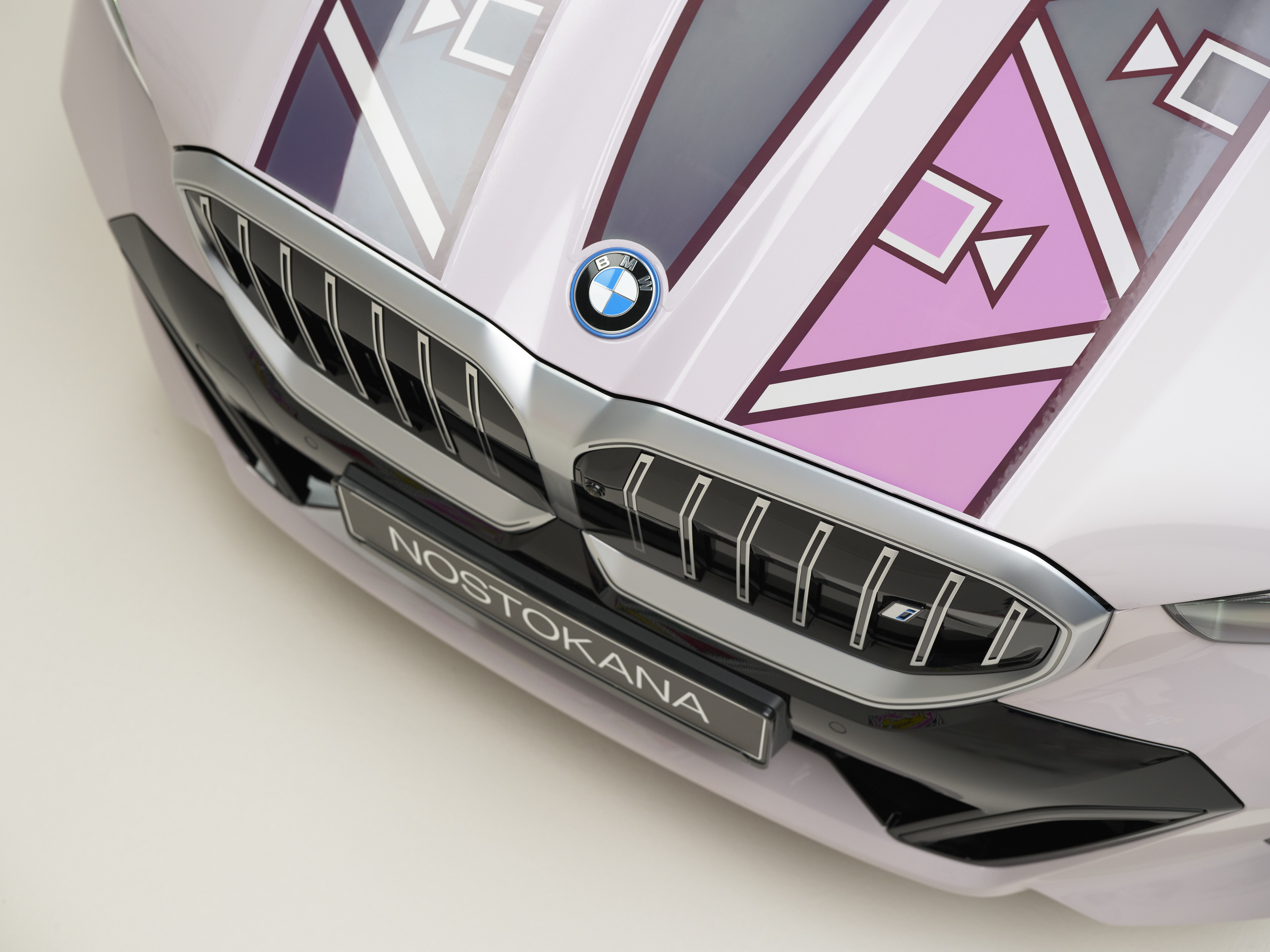
BMW i5 Flow NOSTOKANA
Now the company has taken everything a step further along. Not only does the technology now reside on a production series eighth generation BMW i5 – the first all-electric 5-Series model – but the complexity and sophistication of the e-ink panels has increased hugely. Whereas the iX Flow had 60 ‘segments’ (independent e-ink screens), the i Vision Dee had 240. The new car has no fewer than 1,349, involving a massive increase in the number of controllers and wiring required to hook it all together.
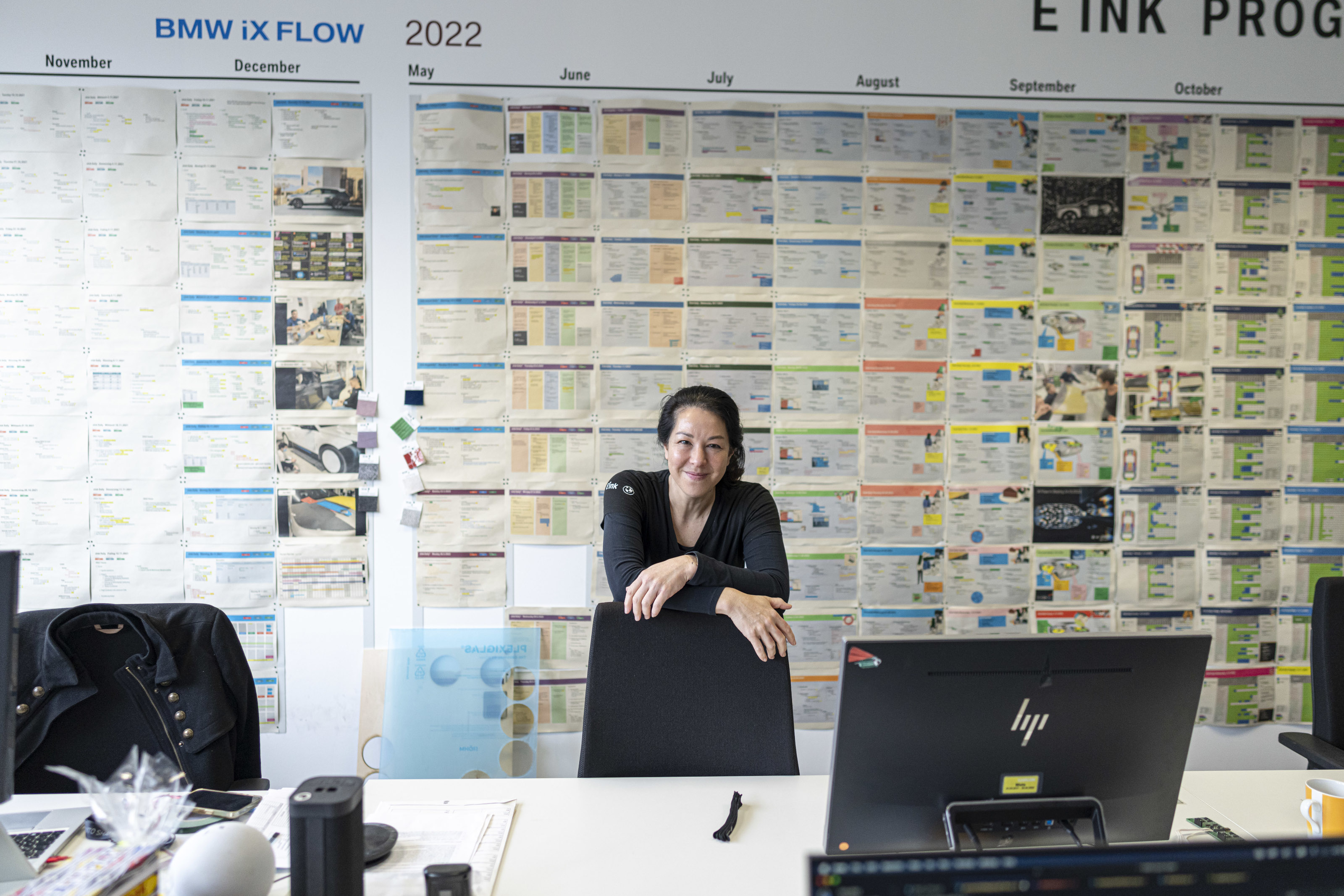
Stella Clarke, developing the BMW i5 Flow NOSTOKANA
The person responsible for driving the project is engineer Stella Clarke. Setting herself the task of taking BMW’s e-ink research to the next level, the Australian-born Research Engineer reached back into the archives and revisited Mahlangu’s 1990s collaboration as part of a presentation she put together to explore new ideas for the tech. ‘Her art inspired me years ago, back when the concept of colour change on a car was just an idea in my head,’ she says, not expecting to be able to develop the ‘Flow’ technology with such a direct connection to the artist.
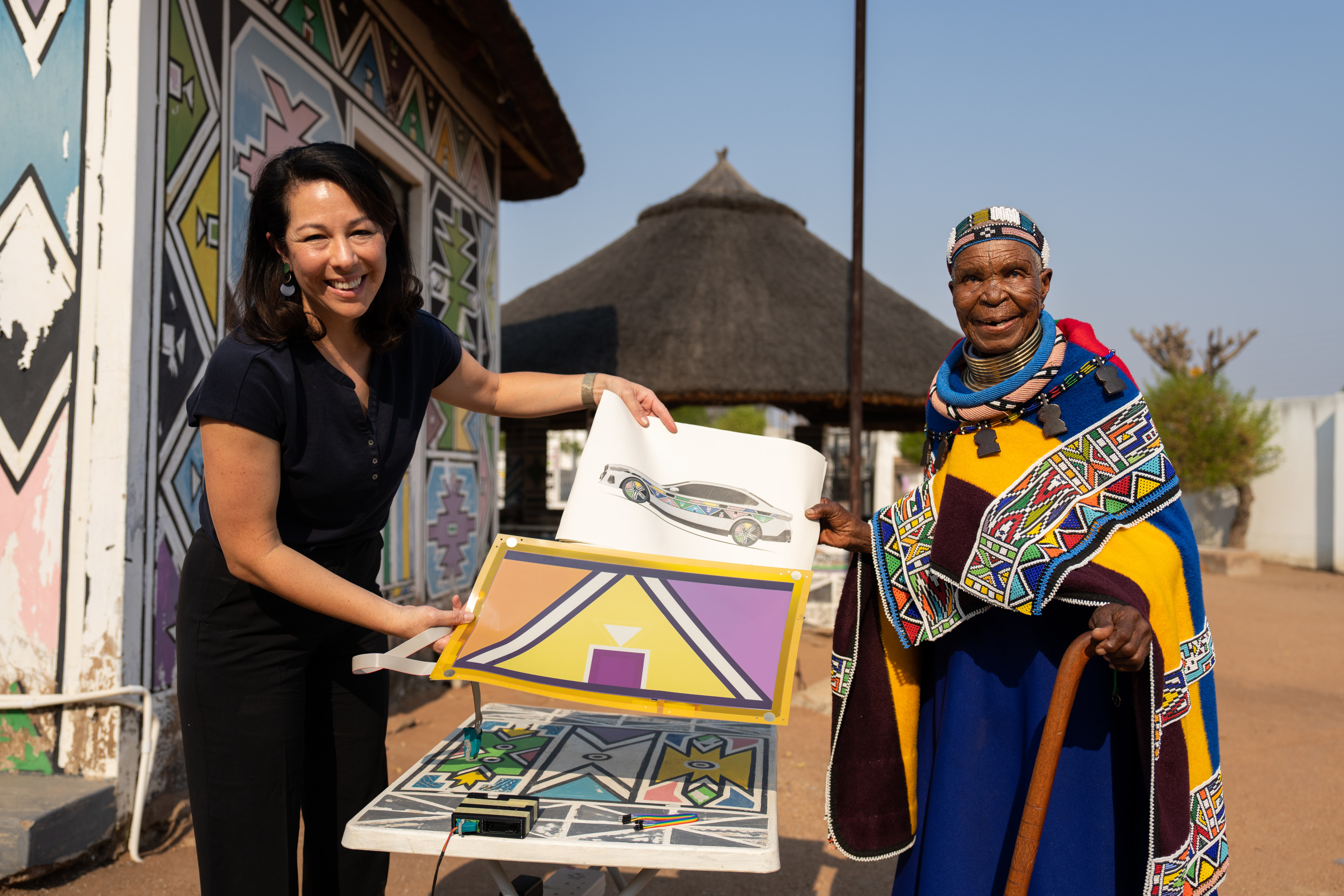
Stella Clarke with Esther Mahlangu
Mahlangu’s signature aesthetic has brought traditional Ndebele art to a wider audience, building on its origins as a form of decoration that can be applied to everything from houses to textiles, pots and clothing. The patterns and colours also lent themselves very well to the technical limitations of the Flow technology. Strips of the e-ink film are applied across the cars roof, bonnet and sides, as well in the wheels. Just like in an e-ink tablet, voltage changes allow the colour particles to be rearranged; remove the charge and the patterns stay exactly as they were.
Wallpaper* Newsletter
Receive our daily digest of inspiration, escapism and design stories from around the world direct to your inbox.
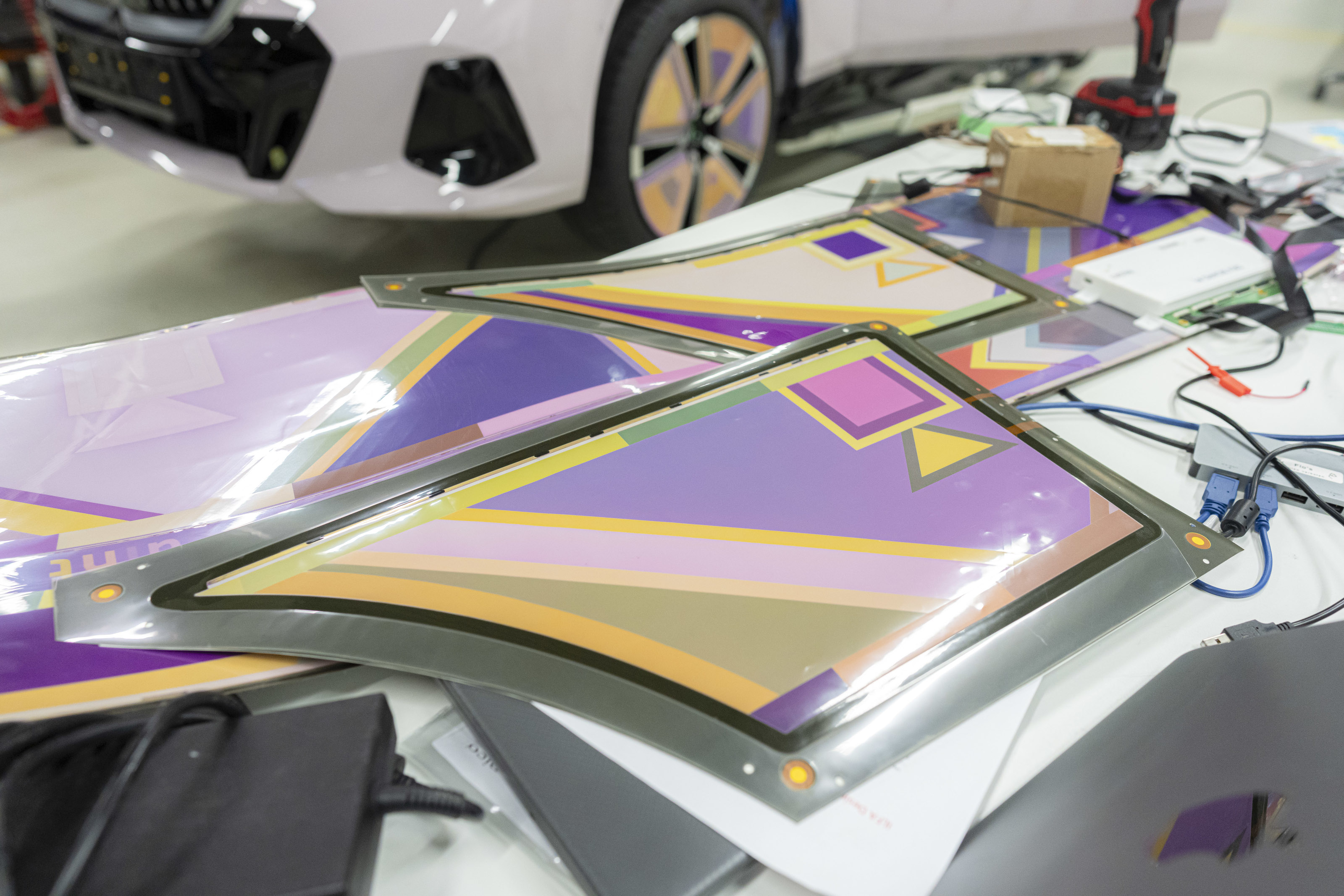
Developing the BMW i5 Flow NOSTOKANA
Not only does this system use very little power, but in the i5 Flow NOSTOKANA, it’s been made more robust and durable. Even so, e-ink is still a world away from the traditional pixel – not only does it absorb light rather than emit it, it’s also slow to cycle through the colour changes. Clarke says that the panels have a refresh rate of around 10 seconds, and complex animations were devised to conceal the way the panels gradually change between patterns.
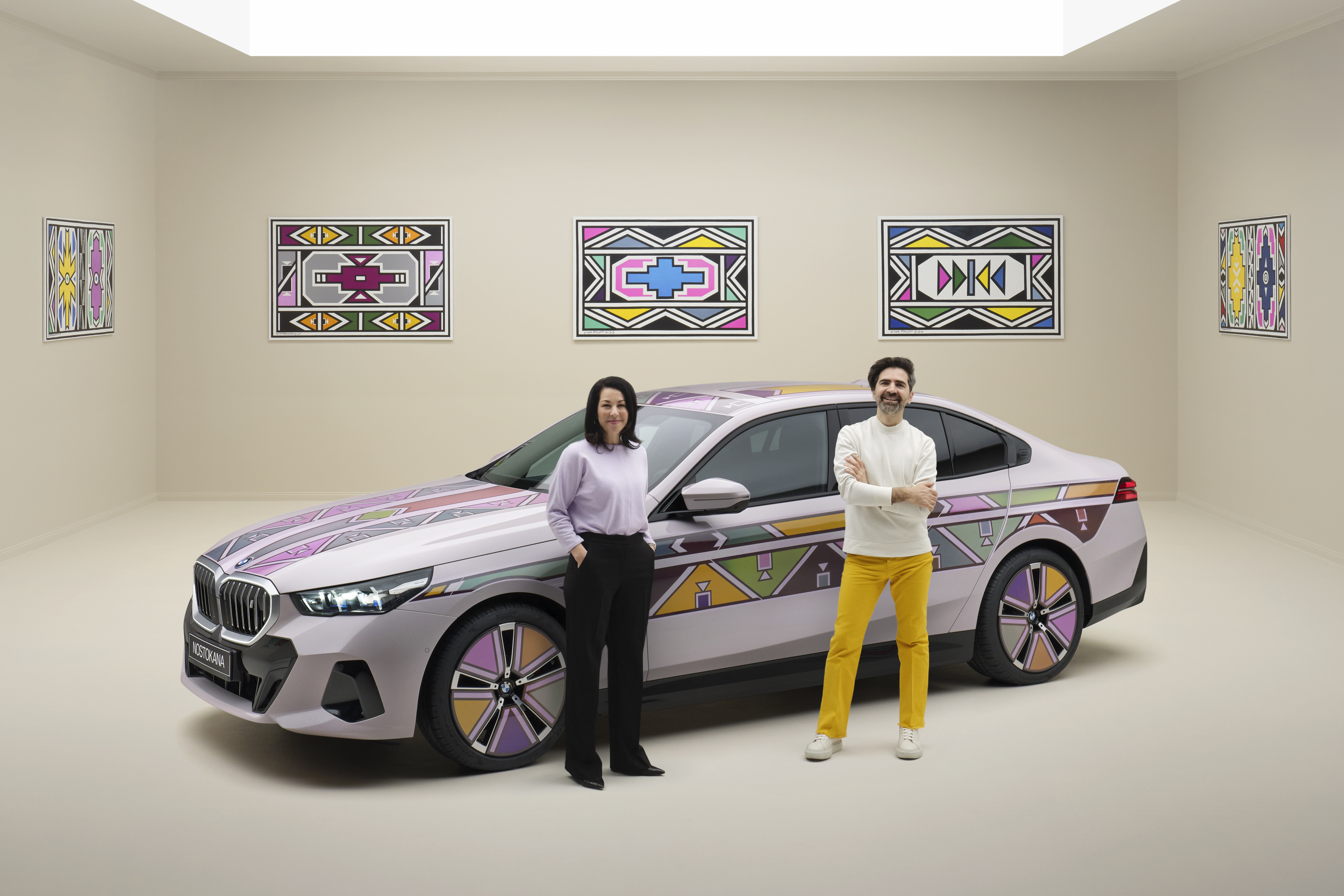
Stella Clarke and Renzo Vitale with the BMW i5 Flow NOSTOKANA
BMW Group's creative director of sound, Renzo Vitale, composed a special soundscape for the official unveiling, using samples of Mahlangu’s voice and feather paint brushes, along with sounds taken from BMW’s own design studio.
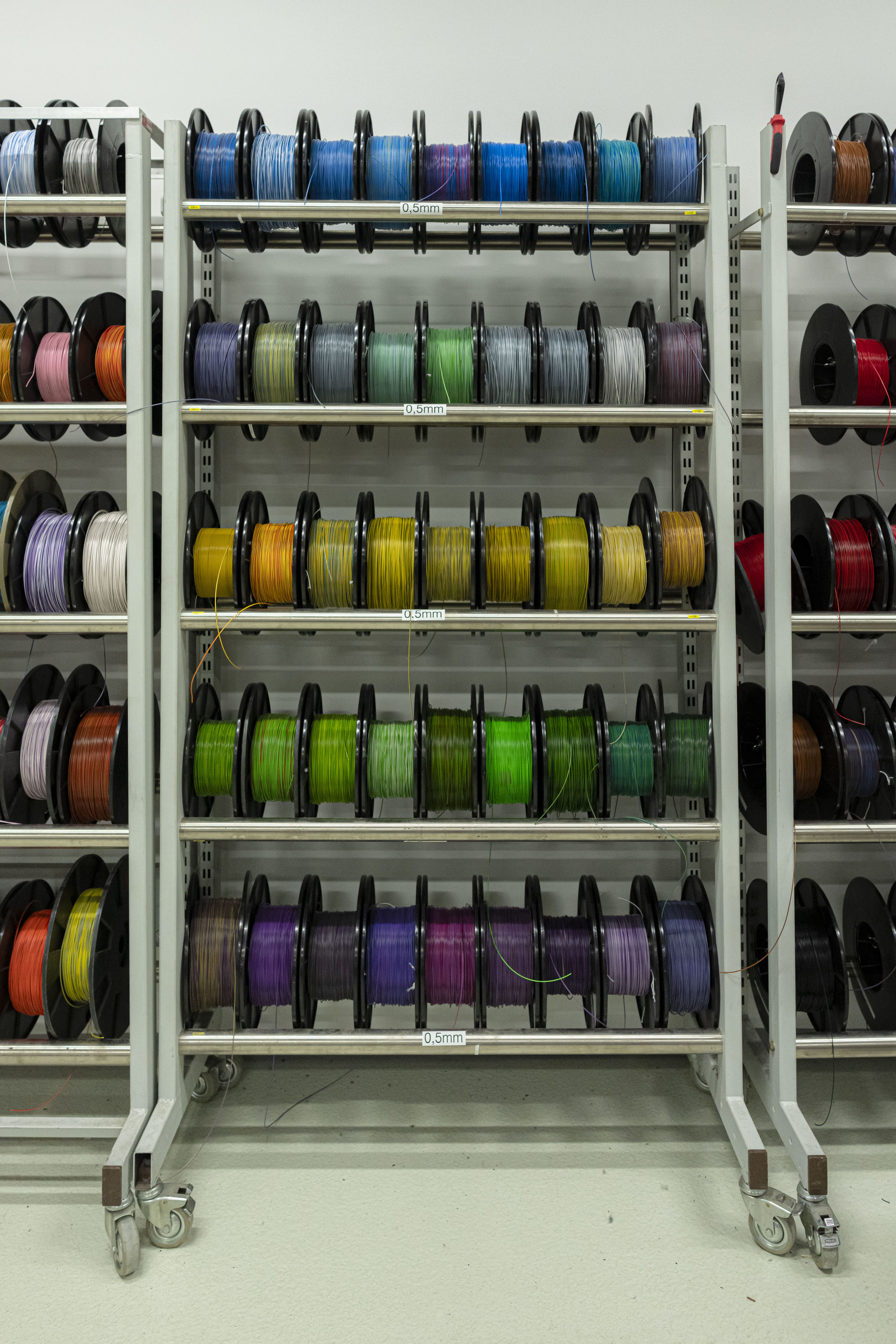
Developing the BMW i5 Flow NOSTOKANA
The company can’t be drawn on practical applications for what is a fun, dynamic distraction (well suited to the bustling halls of Frieze’s West Coast outing, where the people watching is just as diverting as the art). Holger Hampf, president of Designworks since 2017, admits that ‘it’s fairly inconceivable to wrap an entire car’, and the obvious use cases – dynamic advertising, electronic bumper stickers and go-faster stripes – don’t exactly spark much enthusiasm. Instead, we’re more likely to see subtle aspects of the tech seep into interiors, reflecting the desire for more and more personalisation.
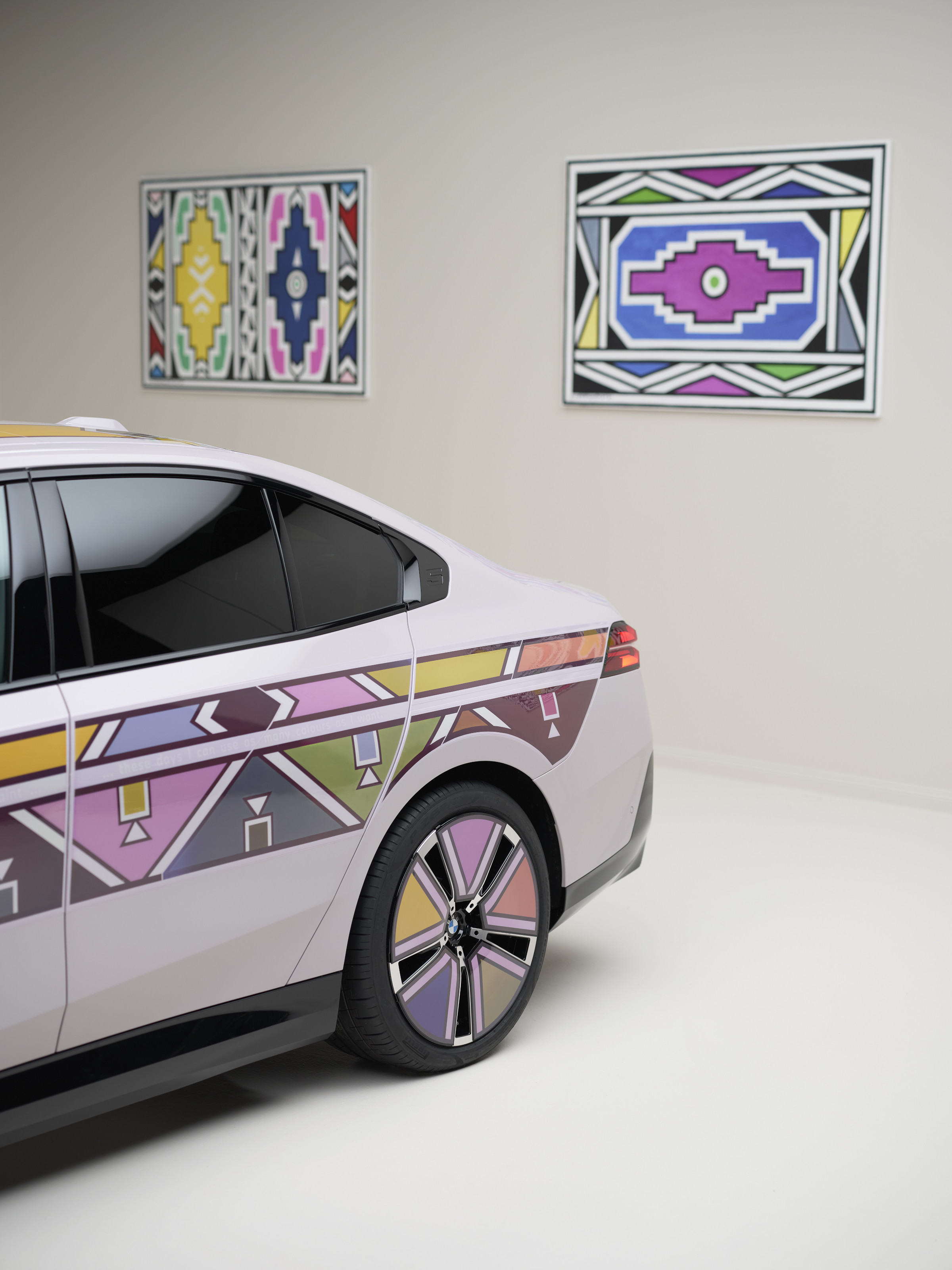
BMW i5 Flow NOSTOKANA
The Flow technology is just one of many avenues explored across BMW’s design division. A quick visit to Designworks, freshly installed in a new studio complex in Santa Monica, gives further insight into the ways in which the company is trying hard to harness emerging technology – most notably AI – with existing methodologies. ‘We’re throwing everything at AI to see what sticks,’ says Hussein Al Attar, the studio's director of Automotive Design. Moving to Santa Monica also places Designworks in the heart of ‘Silicon Beach’, closer to collaborators like Hans Zimmer and digitally-minded artists like Refik Anadol.
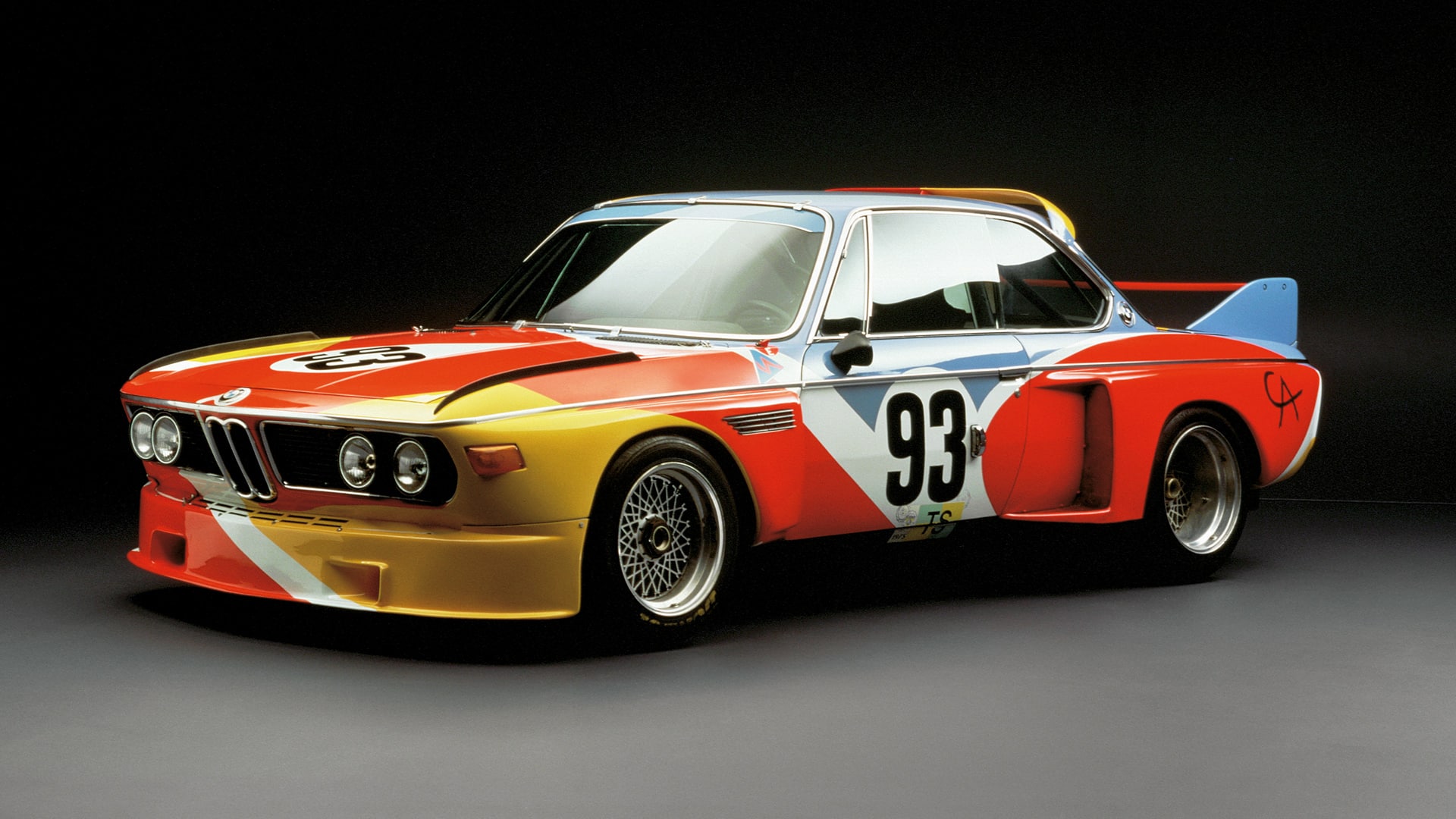
The original: Alexander Calder's 1975 BMW 3.0 CSL Art Car
As for art, BMW’s involvement has paid more and more attention to the shifting relationship between artists and technology. ‘In the beginning, the cars were painted,’ Girst says simple, explaining that the very first BMW Art Car was Alexander Calder’s BMW 3.0 CSL, commissioned by auctioneer and racing driver Hervé Poulain for his own attempt at the 1975 Le Mans.
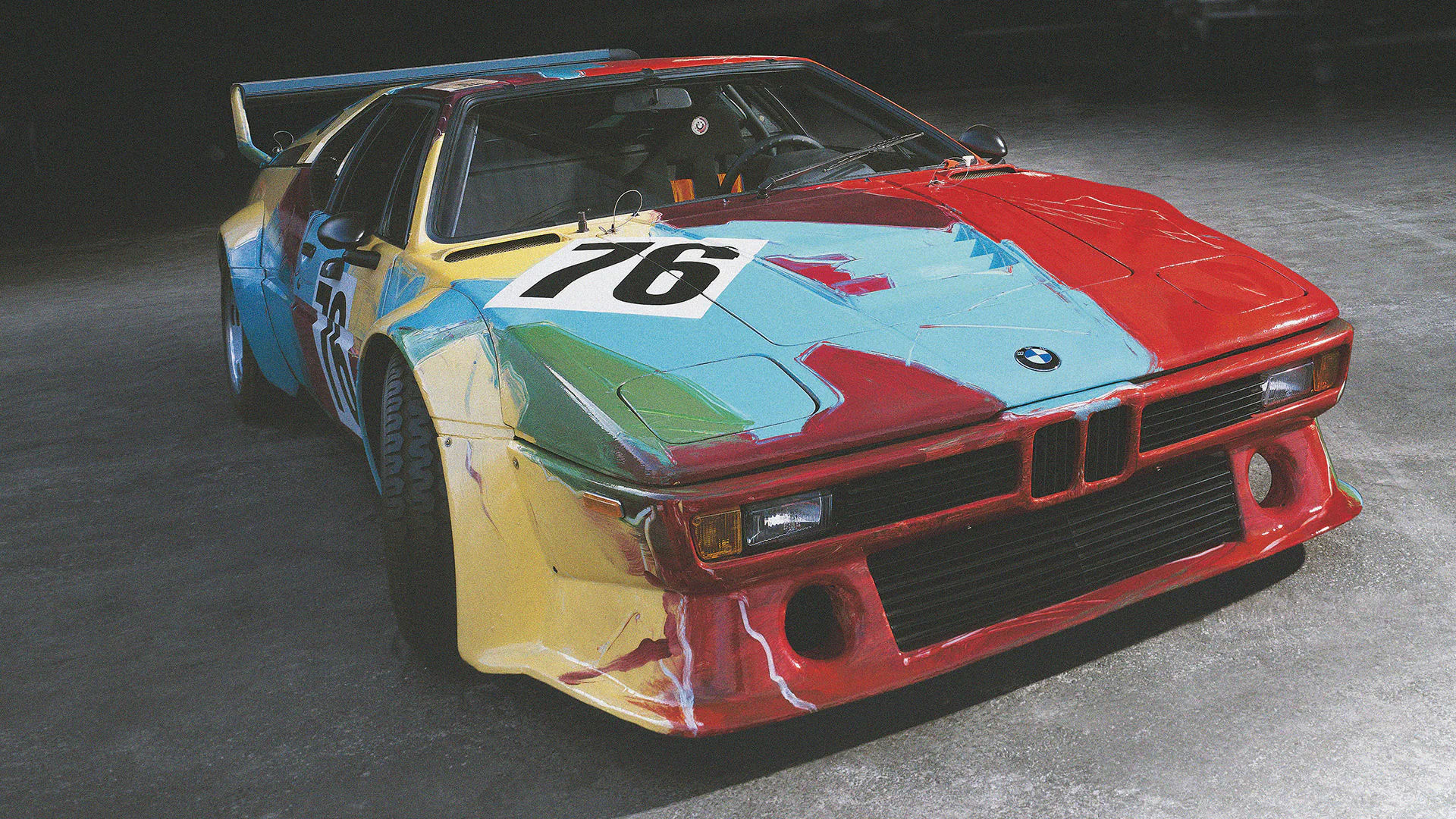
Andy Warhol, Art Car #4, BMW M1, 1979
Although Olufar Eliasson’s 2007 BMW H2R was the first Art Car to really push the boundaries of the series, Girst calls it ‘a bit of an outlier.’ Cao Fei’s 2017 Art Car: Unmanned was the first really tech-driven project. Shown alongside John Baldessari’s Art Car #19), Girst cites it as a major step forwards for the way the series integrated art and technology.
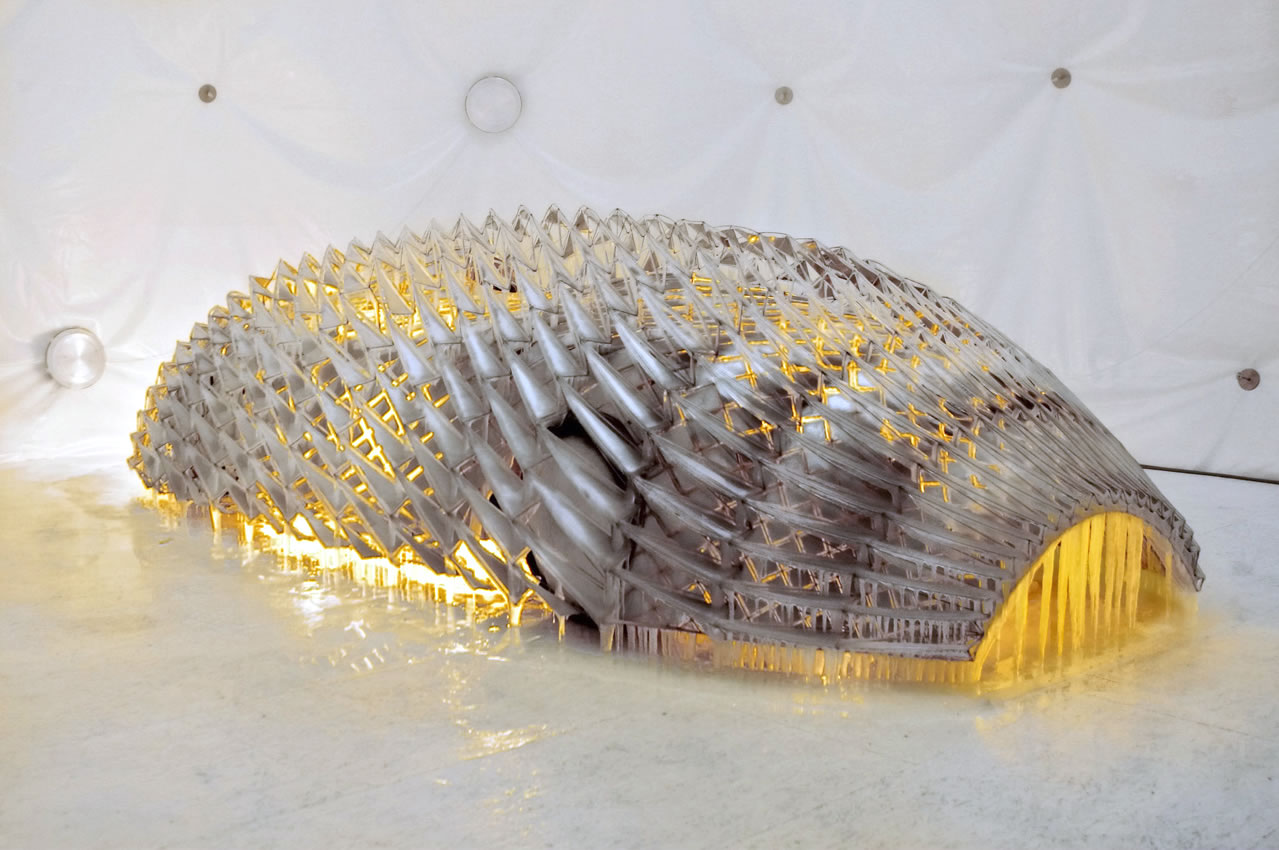
Olafur Eliasson, BMW H2R, Art Car #16, 2007
Different artists have had different approaches, and those who have been commissioned to paint an actual race car, like Julie Mehretu’s Art Car #20, due to run the 2024 Le Mans, the only restrictions are weight and aerodynamics. Andy Warhol saw the speed as a challenge, and his 1979 BMW M1 allegedly took just 29 minutes to paint (by hand). Roy Lichtenstein, David Hockney, Frank Stella, Robert Rauschenberg, Jenny Holzer, and Jeff Koons have all had a go as well, with Koons even being asked back to give the world an art car you could buy, with the 99 examples of the 8 X Jeff Koons.
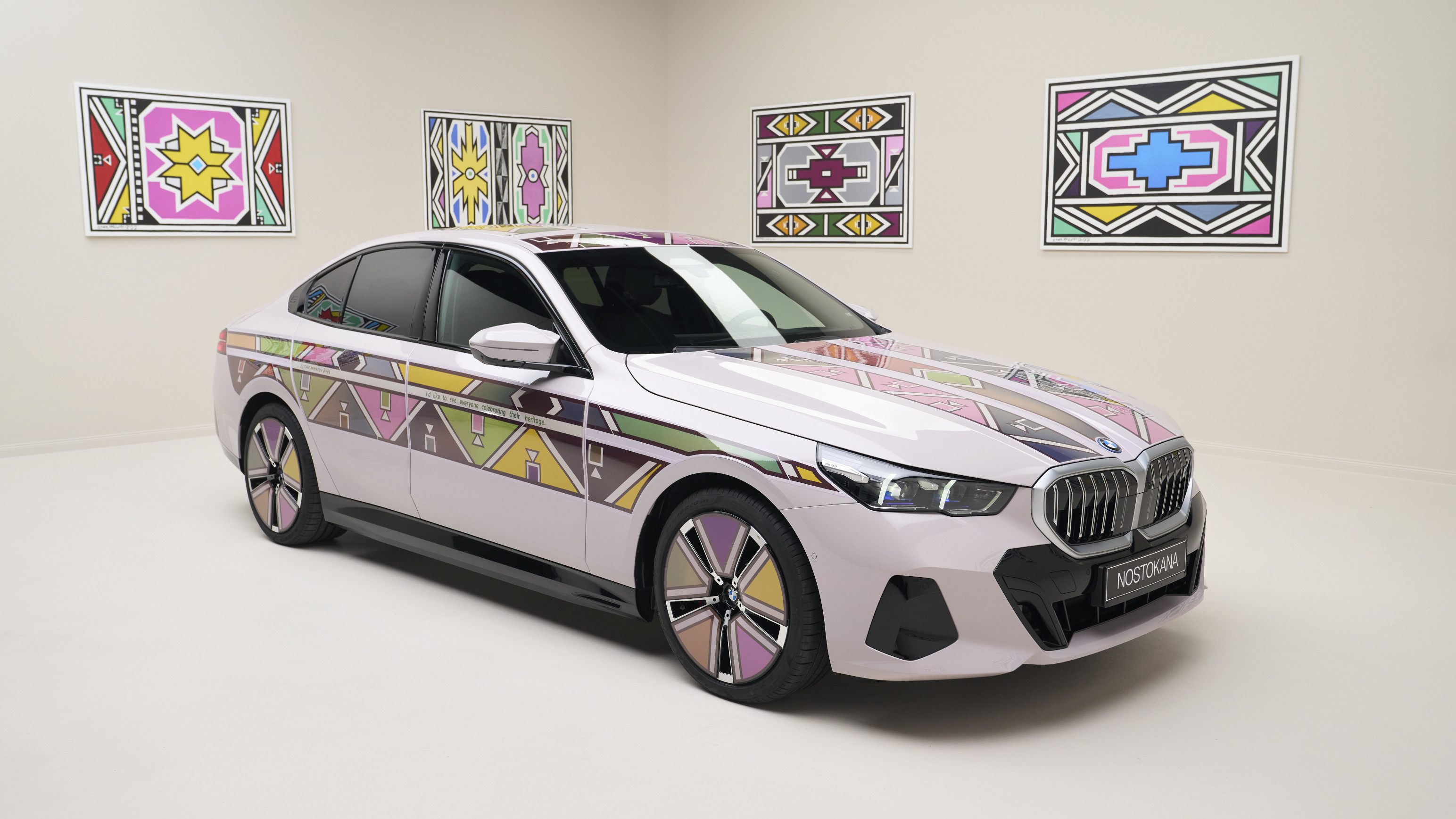
BMW i5 Flow NOSTOKANA
There’ll only be one NOSTOKANA (the name is derived from Esther Mahlangu’s son). For Mahlangu, now 88 and unable to make the journey to LA to see the car unveiled, the ideas of a car that creates joy is a welcome one. ‘It is fascinating to me to see how modern technology can expand my art and make it accessible to a completely new audience,’ she’s quoted as saying. A car is strange canvas for any artist, and over half a century, BMW has dominated the sphere through its sponsorship and support initiatives. With the Flow concepts, the company has taken the definition of canvas to a whole new level.
See our Frieze LA 2024 guide for what’s on in and around the fair
Jonathan Bell has written for Wallpaper* magazine since 1999, covering everything from architecture and transport design to books, tech and graphic design. He is now the magazine’s Transport and Technology Editor. Jonathan has written and edited 15 books, including Concept Car Design, 21st Century House, and The New Modern House. He is also the host of Wallpaper’s first podcast.
-
 Put these emerging artists on your radar
Put these emerging artists on your radarThis crop of six new talents is poised to shake up the art world. Get to know them now
By Tianna Williams
-
 Dining at Pyrá feels like a Mediterranean kiss on both cheeks
Dining at Pyrá feels like a Mediterranean kiss on both cheeksDesigned by House of Dré, this Lonsdale Road addition dishes up an enticing fusion of Greek and Spanish cooking
By Sofia de la Cruz
-
 Creased, crumpled: S/S 2025 menswear is about clothes that have ‘lived a life’
Creased, crumpled: S/S 2025 menswear is about clothes that have ‘lived a life’The S/S 2025 menswear collections see designers embrace the creased and the crumpled, conjuring a mood of laidback languor that ran through the season – captured here by photographer Steve Harnacke and stylist Nicola Neri for Wallpaper*
By Jack Moss
-
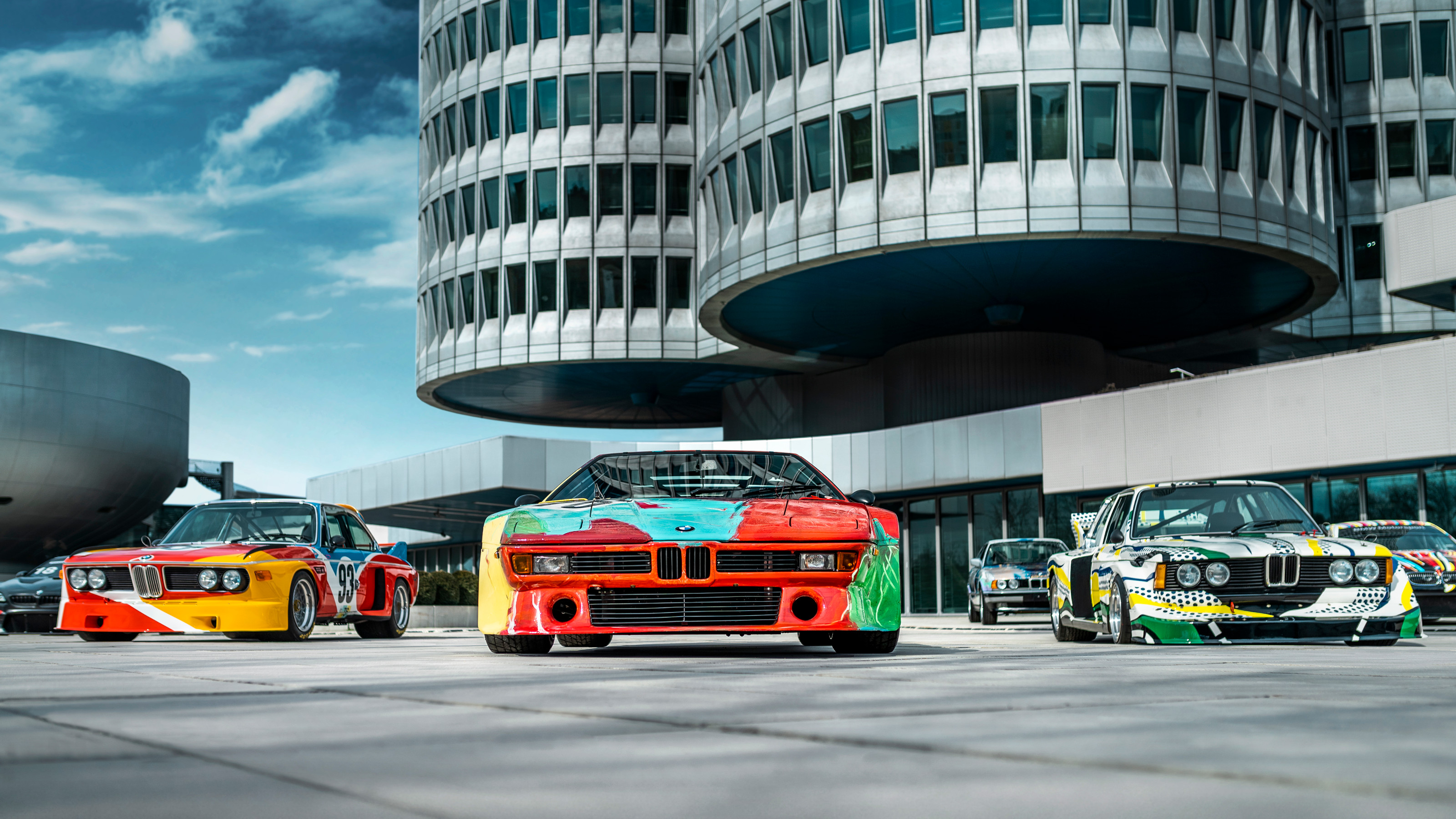 BMW celebrates half a century of its pioneering Art Car project with exhibitions and more
BMW celebrates half a century of its pioneering Art Car project with exhibitions and moreWe present a portfolio of the artists who have contributed to 50 years of BMW Art Cars, including Andy Warhol, John Baldessari, Jenny Holzer and David Hockney
By Jonathan Bell
-
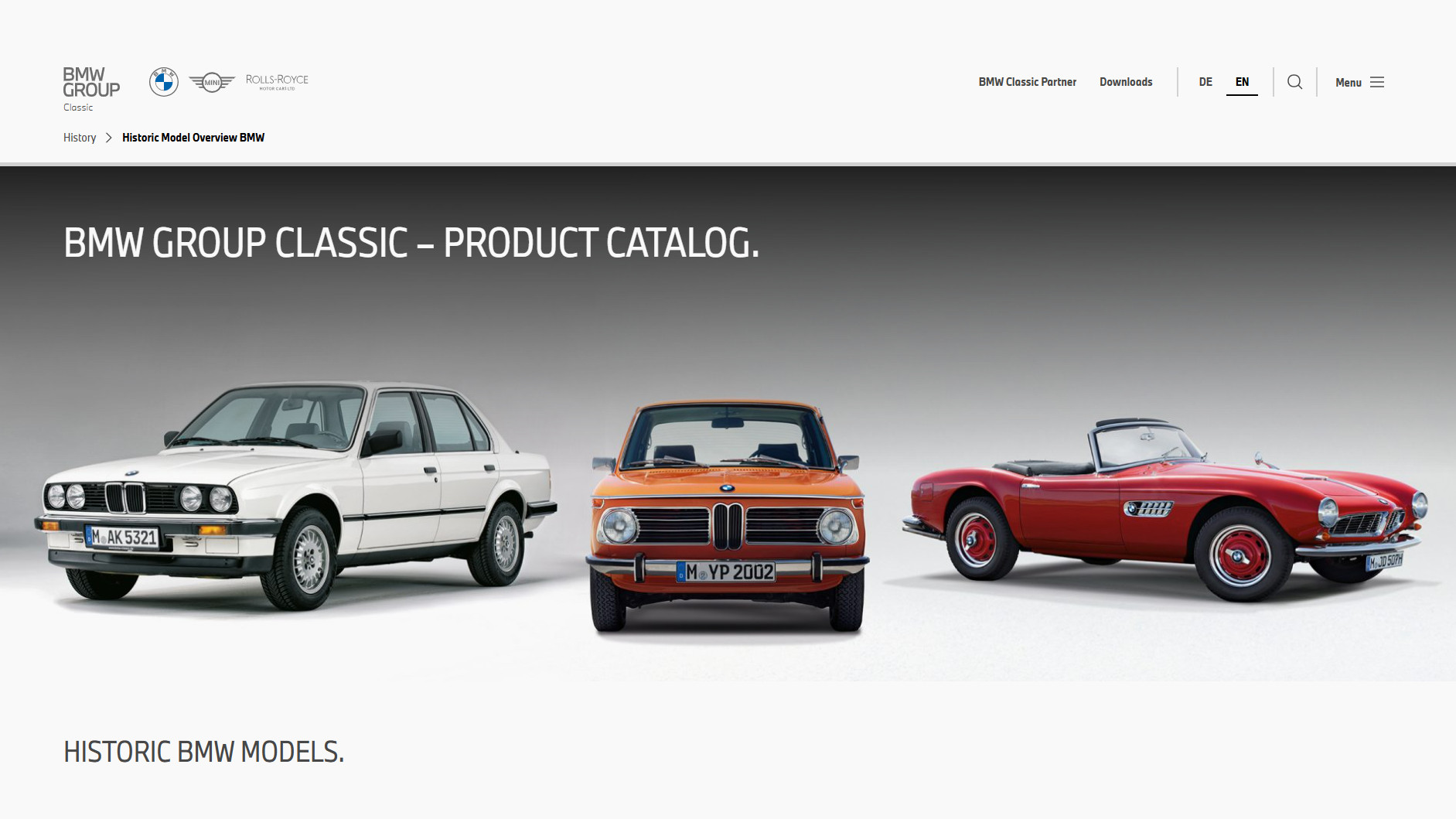 Peruse the new BMW Group Archive to explore the evolution of BMW design over the decades
Peruse the new BMW Group Archive to explore the evolution of BMW design over the decadesFor lovers of the marque, BMW’s commitment to online archiving is second to none. The latest website from the Bavarian manufacturer is this extensive visual catalogue of 80 years’ worth of BMW design
By Jonathan Bell
-
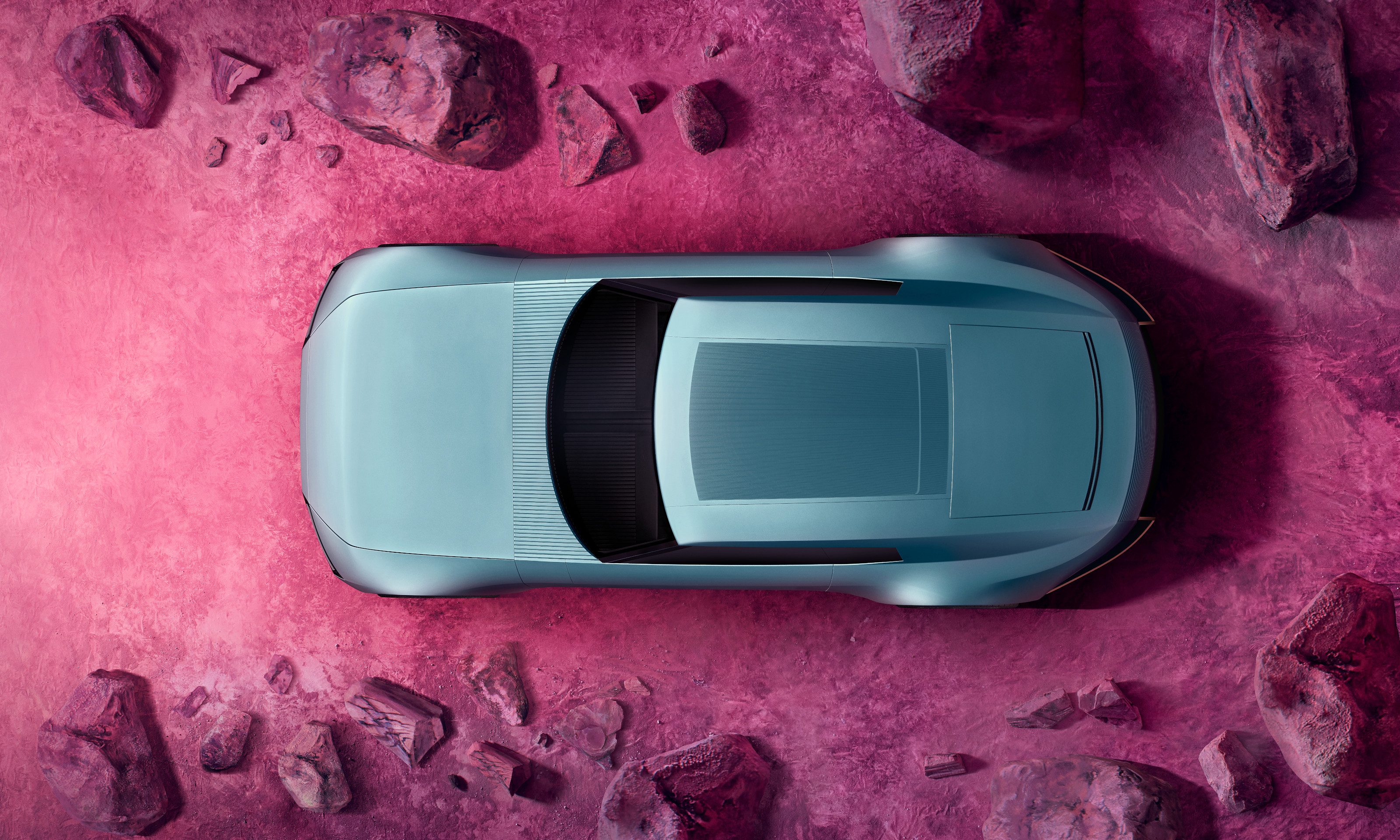 The top 10 concept cars of 2024, as selected by Wallpaper’s Transport Editor
The top 10 concept cars of 2024, as selected by Wallpaper’s Transport EditorWe round up our favourite forays into futuristic design with this collection of concepts and design studies showcasing the transport of tomorrow
By Jonathan Bell
-
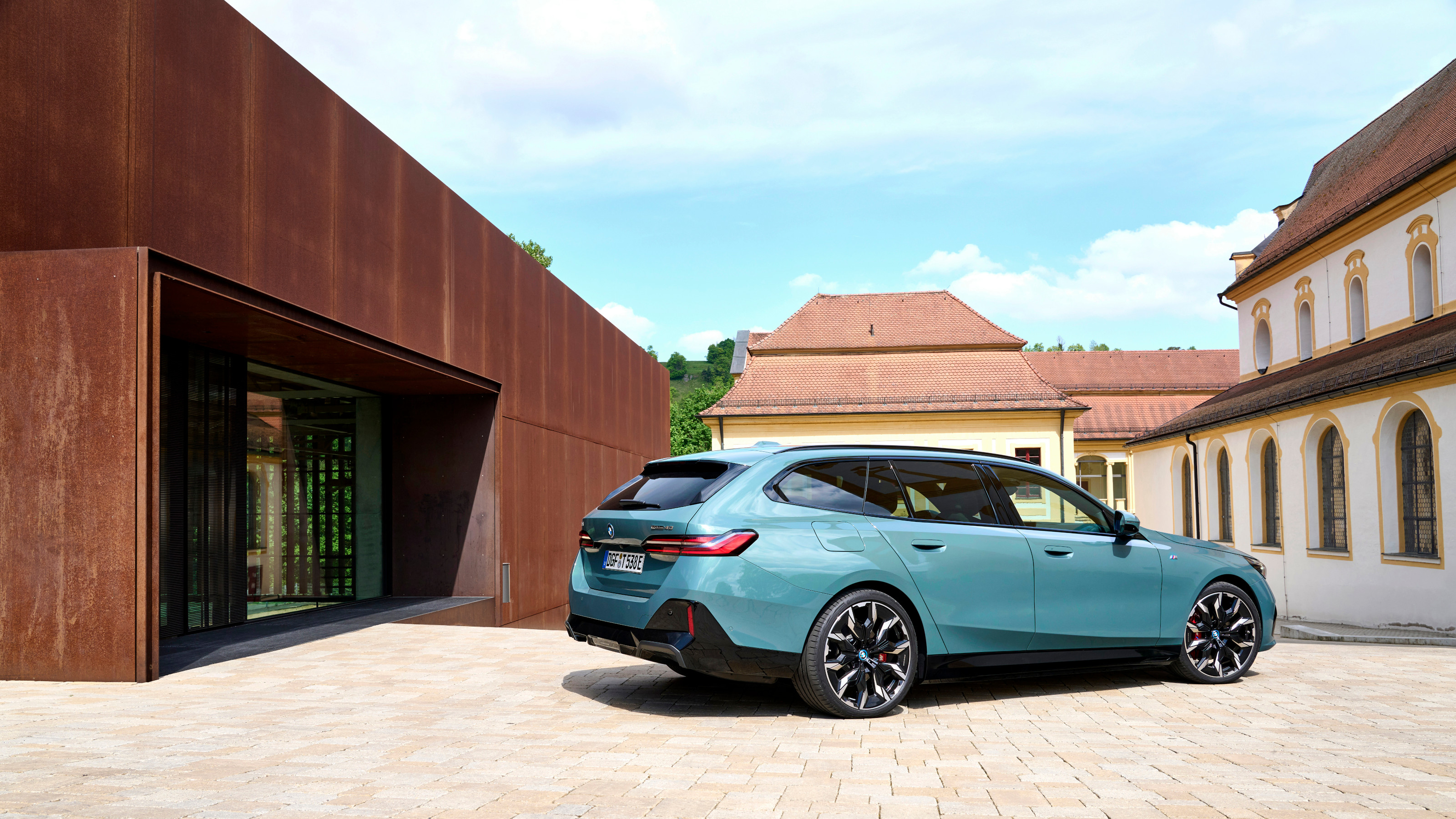 New BMW i5 Touring is an all-electric tech powerhouse that brings the noise
New BMW i5 Touring is an all-electric tech powerhouse that brings the noiseBMW has thrown its considerable expertise into making the i5 eDrive40 M Sport Pro Touring the ultimate zero-emission all-rounder. Jonathan Bell tries it out
By Jonathan Bell
-
 BMW’s limited-edition Skytop roadster draws on the past. Could it also predict the future?
BMW’s limited-edition Skytop roadster draws on the past. Could it also predict the future?Just 50 examples of the BMW Skytop are being built, and they’ve all been spoken for. We examine whether this classically styled machine is a harbinger of aesthetic change
By Jonathan Bell
-
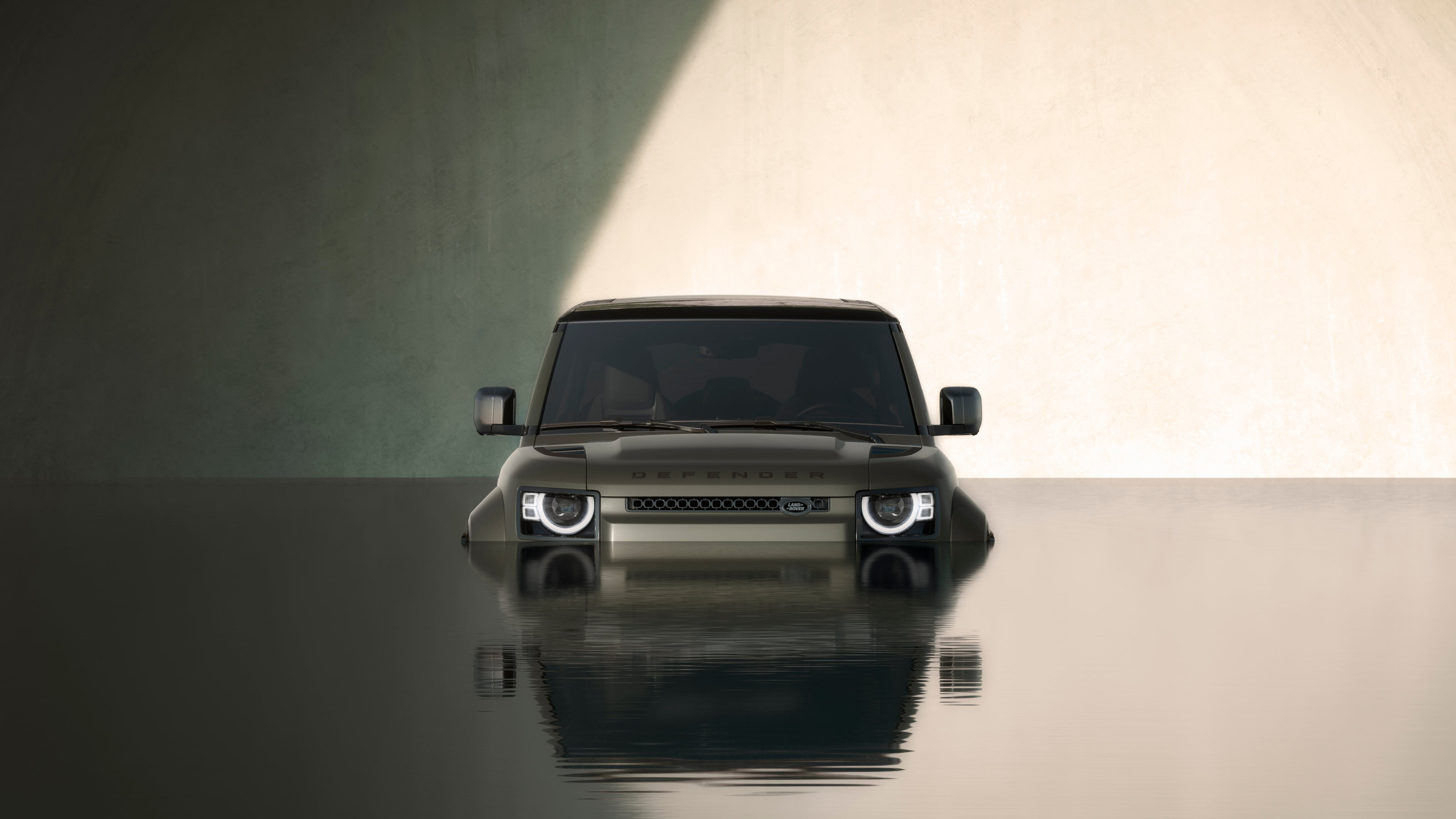 The 2024 Goodwood Festival of Speed hosted a wealth of auto innovation, from hypercars to hot hatches
The 2024 Goodwood Festival of Speed hosted a wealth of auto innovation, from hypercars to hot hatchesThe best new SUVs, EVs, hatchbacks and supercars to emerge from the 2024 Goodwood Festival of Speed
By Jonathan Bell
-
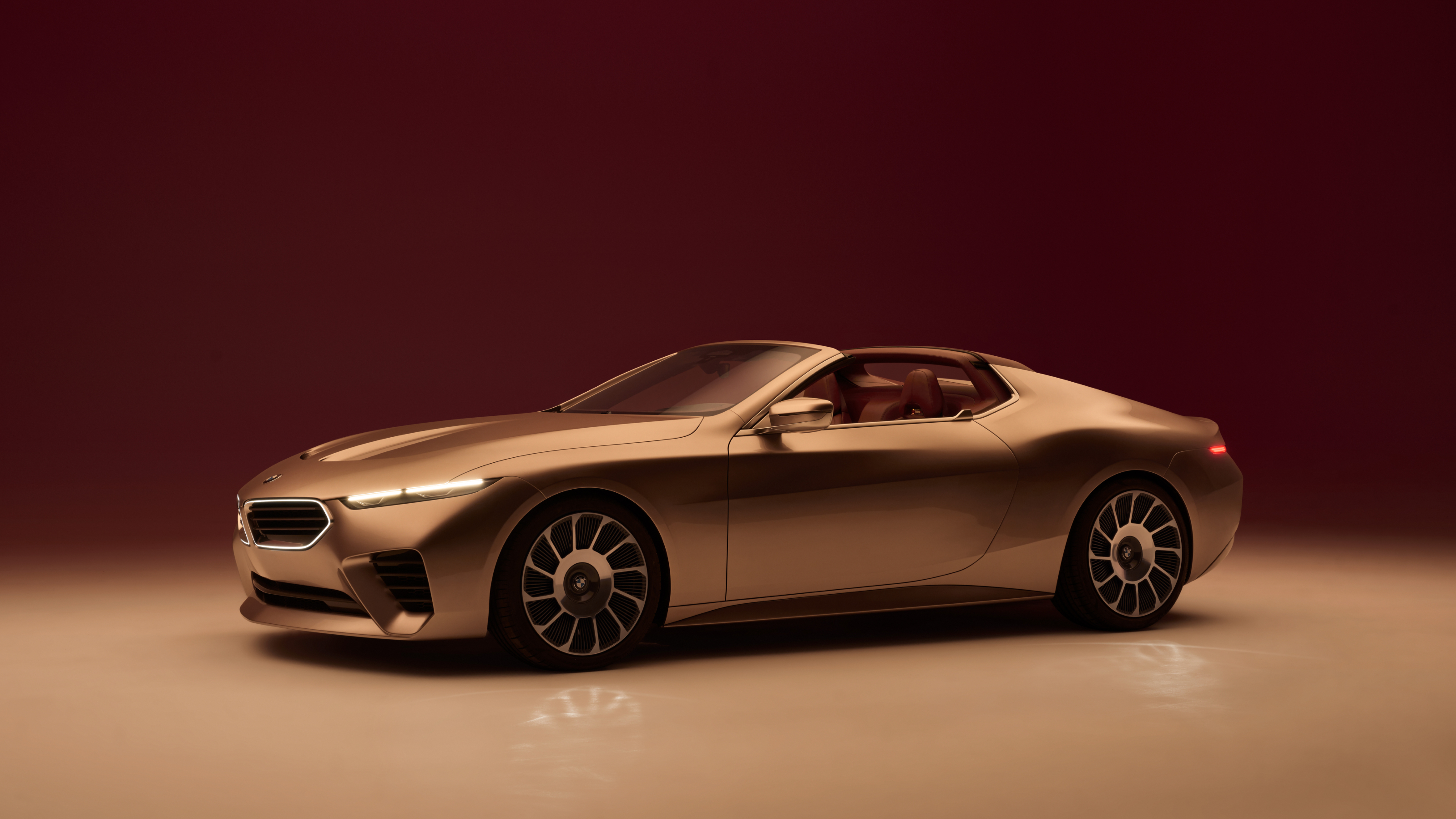 The Concept Mercedes-AMG PureSpeed and BMW Concept Skytop offer drop-top dreams
The Concept Mercedes-AMG PureSpeed and BMW Concept Skytop offer drop-top dreamsBMW and Mercedes-AMG open up with two new convertible concepts, one pitched at performance, the other at the spirit of the good life
By Jonathan Bell
-
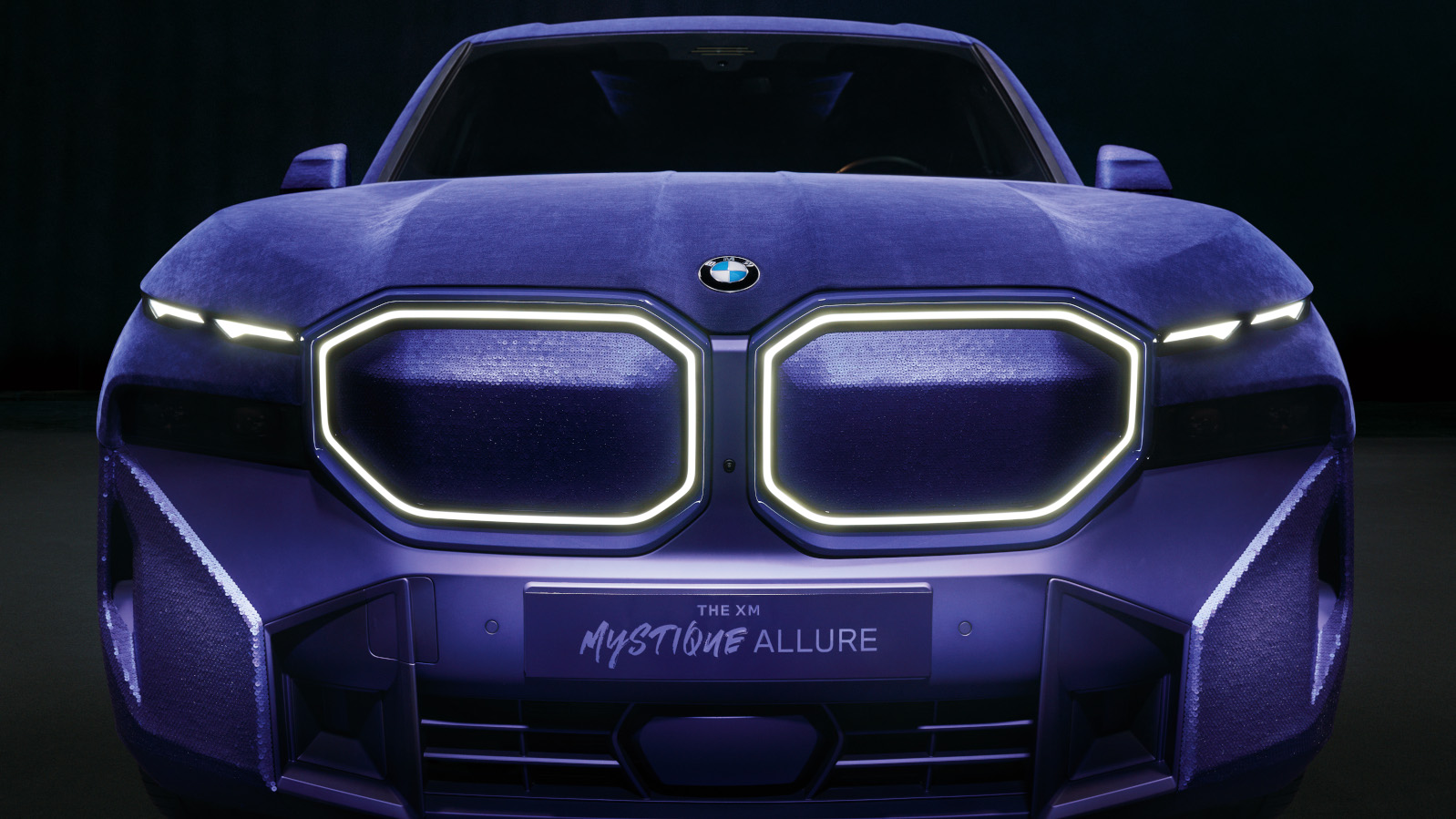 BMW launches its latest supermodel, the BMW XM Mystique Allure
BMW launches its latest supermodel, the BMW XM Mystique AllureThe haute couture-inspired BMW XM Mystique Allure, dedicated to Naomi Campbell and with a soundtrack by composer Hans Zimmer, makes its debut at Cannes International Film Festival 2024
By Simon Mills